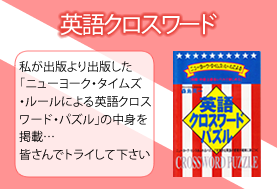
VOLUME-1
☆Yamanoue-no Okura’s poem:
いざ子ども
早く日本(ヤマト)へ
大伴の
御津の浜松
待ち恋ひぬらむ
(山上憶良 巻1-63)
Iza kodomo
Hayaku yamatohe
Ootomono
Mitsuno hamamatsu
Machi kohinuramu
(Vol.1-63)

● BILOG“MAN-YOH-SHUH”topに戻るGet ready, young ones,
We’ll depart for our homeland
After so many months.
Pines on the beach of Mitsu Port
Must be pining for our hands!
(Vol.1-63)
Yamanoue-no Okura (660-733?) was dispatched in 701 to China, then under Tang Dynasty, as a leader of a mission, returned home in 704. Appointed Governor of Hoki Province (Tottori-Shimane Prefs. of today) in 716, and later in 726 appointed Governor of Chikuzen Province (Fukuoka Pref. of today), a higher rank in view of the importance of the district which was a diplomatic outpost for the Chinese Continent and Korean Peninsula.
This poem above is noteworthy in that it is the first and only poem (Waka/Tanka) listed on Man-Yoh-Shuh that was created by anybody while abroad. The poem was written while Okura was in China and about to return to Japan, leading young students.
A theory has it that Okura may well have been a member of a family who fled the lost Kingdom of Baekje on the Korean Peninsula, and emigrated to Japan. Okura was said to have been at the age of 4, when the family arrived in Japan. Okura’s poems are very often about the family tie and sung with his considerate eyes on poor people – perhaps coming from this background. See other poems of Okura introduced in this booklet.
I might add a point about this poem – This poem was made when a Japanese mission had a schedule to go back home soon, and Okura, the senior leader of the mission (consisting of young students) proclaimed that they should be leaving China soon, back for Mitsu Port where they had sailed about two years ago. In the poem, he says that “Pines on the beach of Mitsu Port must be pining for us”. This English translation which I made has a rhyme here of pine(tree) and pine (to be longing). This translation corresponds to the original Japanese poem where Okura says “Mitsu-no Hama Matsu(pine tree) Machi koinuramu”(should be longing to see us again).
By the way, “Mitsu” (御津) means Inlet (Tsu with an honorific Mi) . There is a town named this way in Tatsuno City, Hyogo Pref. today. But it’s not sure if “Mitsu” in this poem indicates Mitsu in Hyogo, or another one which is said to have existed by this name in Osaka Bay at the mouth of a river flowing from Nara. Since the poem has a reference to “Ootomo-no” directly before “Mitsu”, it sounds as though the “Mitsu Port was an honorable port belonging to the powerful Ootomo Clan near Nara.





